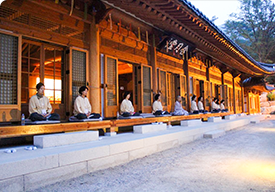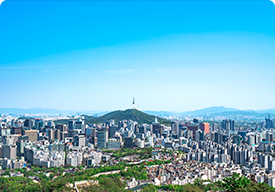- 바로가기 메뉴
- 본문 바로가기
- 주메뉴 바로가기
seoul convetion bureau
 EXPERIENCE SEOUL
Discover Bleisure
Seoul for Foodies
EXPERIENCE SEOUL
Discover Bleisure
Seoul for Foodies
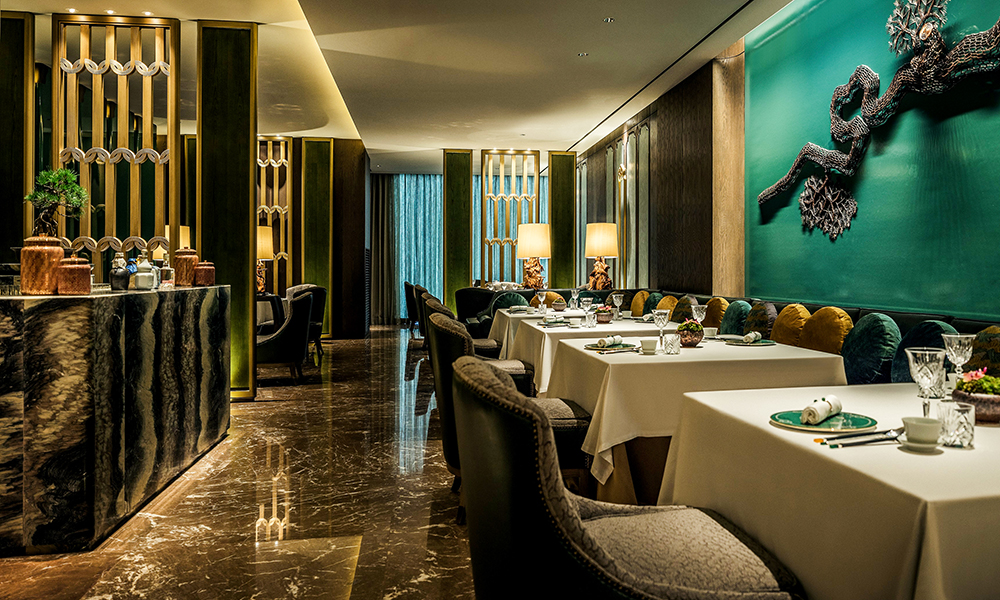
Please click the hashtags below to find out more!
#Taste of Seoul - traditional cuisine restaurants
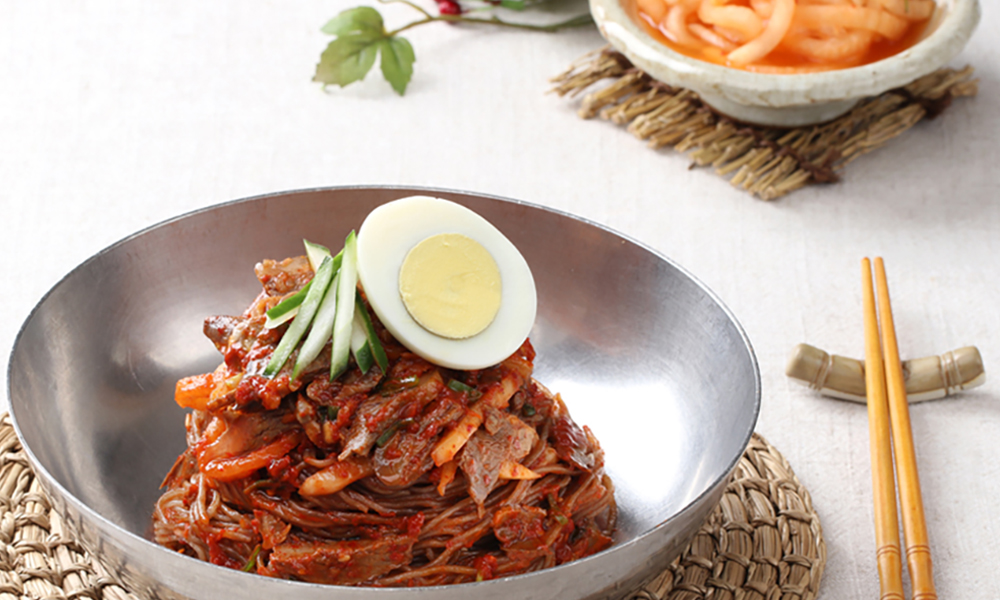
If you visit Korea in the summer, try naengmyeon at least once during your stay. Ojang-dong
Heungnamjip is a Hamheung naengmyeon specialty restaurant honored by time (it opened in 1953).
It serves Hamheung naengmyeon - chewy sweet potato starch noodles and savory beef bone broth - and ganjami hoe muchim (slices of aged stingray and vegetables mixed with Korean-style sweet and sour sauce). Add seasonings as you like, such as sesame oil, vinegar, mustard and sugar.
- Ojang-dong Heungnamjip (Ojang-dong Main Restaurant)
-
- Address
- 114 Marennae-ro, Jung-gu, Seoul (Dongdaemun History & Culture Park Station, Exit 6)
- Website
- 오장동흥남집.com
- Inquiries
- +82-2-2266-0735
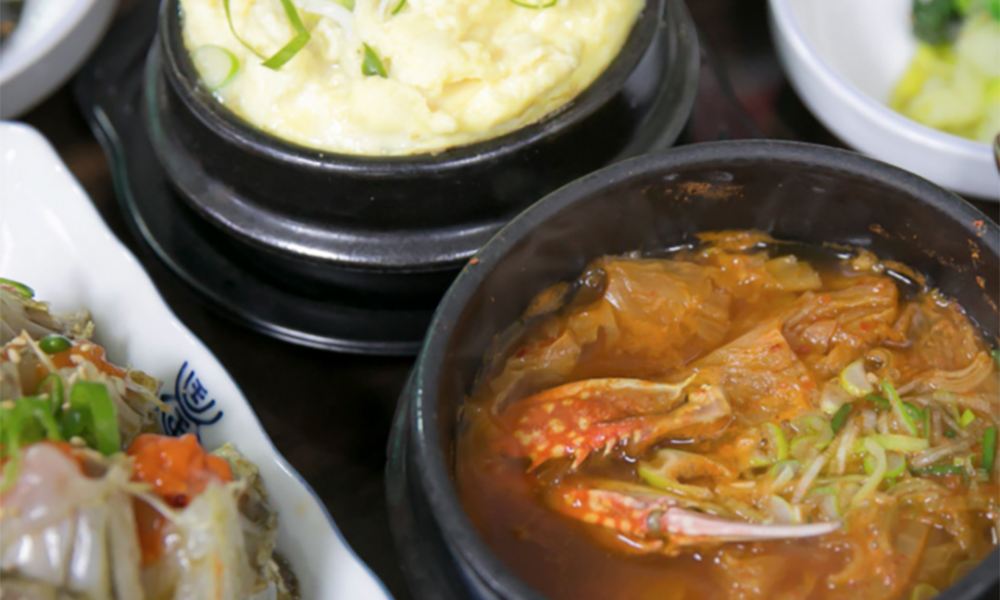
Ganjang gejang is crab marinated in soy sauce (fermented with ginger) and aged for three days.
Ganjang gejang is often called “rice thief” as it stimulates your appetite and causes you to eat
more rice than usual.
Jinmi Sikdang, the most popular Ganjang gejang restaurant in Seoul, serves a set menu that comes with up to ten side dishes including Gyeranjjim (Korean style steamed egg, similar to egg custard texture) and a variety of vegetable dishes.
- Jinmi Sikdang
-
- Address
- 186-6 Mapo-daero, Mapo-gu, Seoul (Aeogae Station, Exit 4)
- Website
- thejinmi.modoo.at
- Inquiries
- +82-2-3211-4468
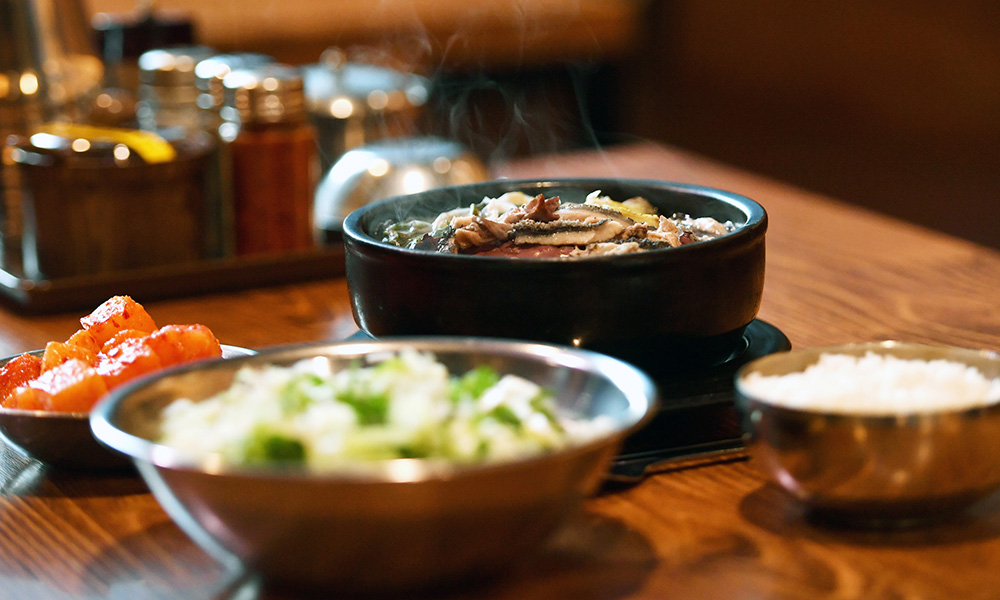
Cheongjinok is an iconic Haejangguk restaurant in Seoul. First opened in 1937, it has been run by
three generations of the same family.
Haejangguk is a traditional meal to ease hangovers and is eaten the day after heavy drinking to calm an upset stomach. Haejangguk involves simmering beef bones, beef intestines, seonji (clotted beef blood) and other ingredients for at least a day.
Cheongjinok is open 24 hours a day, 7 days a week, making it a popular spot for people working until late at night and those who begin work at dawn.
- Cheongjinok
-
- Address
- 32 Jongro 3-gil, Jongno-gu, Seoul (Gwanghwamun Station, Exit 2)
- Website
- www.cheongjinok.com
- Inquiries
- +82-2-735-1690
#Asian cuisine in Seoul
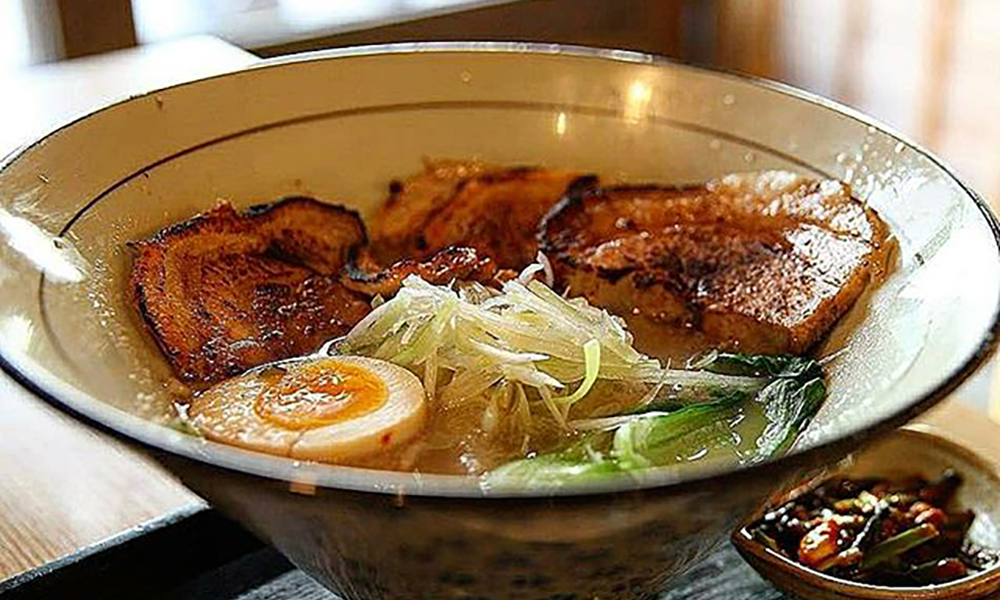
Seoul is a city where one can not only enjoy Korean food but also a variety of flavors from all over
Asia. On days when nothing will do except a bowl of hot ramen, look for the nearby Menya Sandaime.
Its signature dishes, offered through nine locations in downtown Seoul, are tsukemen, noodles served with a seafood dipping sauce, and savory donkotsu ramen. Come try the perfect match of fresh noodles made on site in broth brewed more than 20 hours.
- Menya Sandaime (Hongdae Branch)
-
- Address
- 24 Hongik-ro 5an-gil, Mapo-gu, Seoul (Hongik University Station, Exit 9)
- Website
- all3324129.modoo.at/
- Inquiries
- +82-2-332-4129
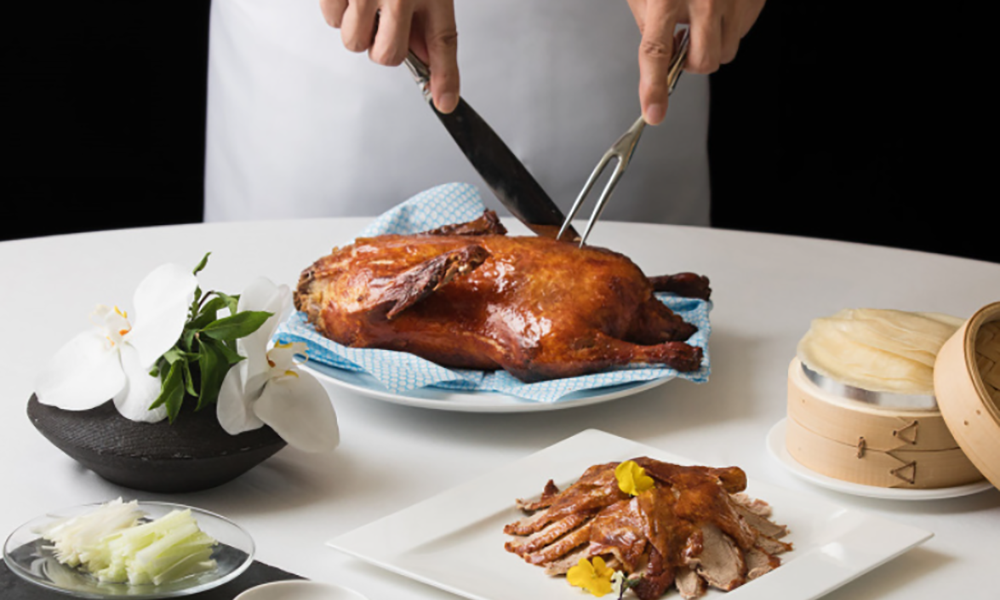
Looking for a classy, tidy Chinese restaurant? We recommend Baek Ri-hyang, which can be found on the
57th floor of the 63 Building. Come for low-calorie Chinese cuisine based on Cantonese-style
recipes.
It is also a popular place for proposals and first-birthday celebration parties as the restaurant features a panoramic view of the Hangang River.
- Baek Ri-hyang
-
- address
- 50, 63-ro, Yeongdeungpo-gu, Seoul (Saetgang Station, Exit 3)
- Website
- www.63restaurant.co.kr
- Inquiries
- +82-2-789-5741
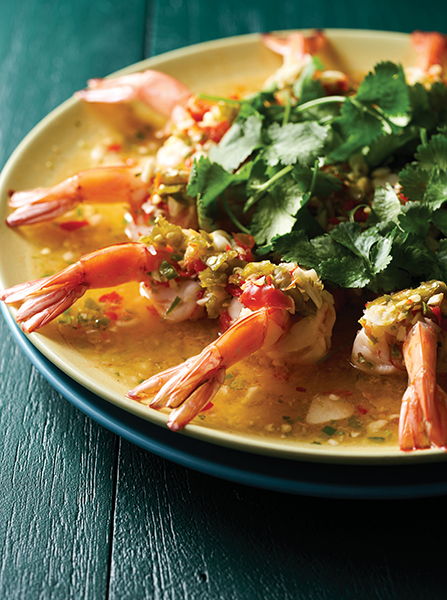
Curious about what kind of Thai food can be found in Seoul? Stop by Soi Yeonnam Mao, and try a wide
variety, along with natural wine.
This is one of several branches operated by Soi Yeonnam, and offers a variety of dishes such as kai ping (charcoal-grilled skewers), tom yam kung with shrimp and pollack roe, and ko mu yang (grilled sweet & spicy pork neck).
- Soi Yeonnam Mao
-
- Address
- 30 Dosan-daero 53-gil, Gangnam-gu, Seoul (Apgujeong Rodeo Station, Exit 5)
- Website
- www.instagram.com/soi_yeonnam//
- Inquiries
- +82-2-545-5130
#Vegan restaurants in Seoul
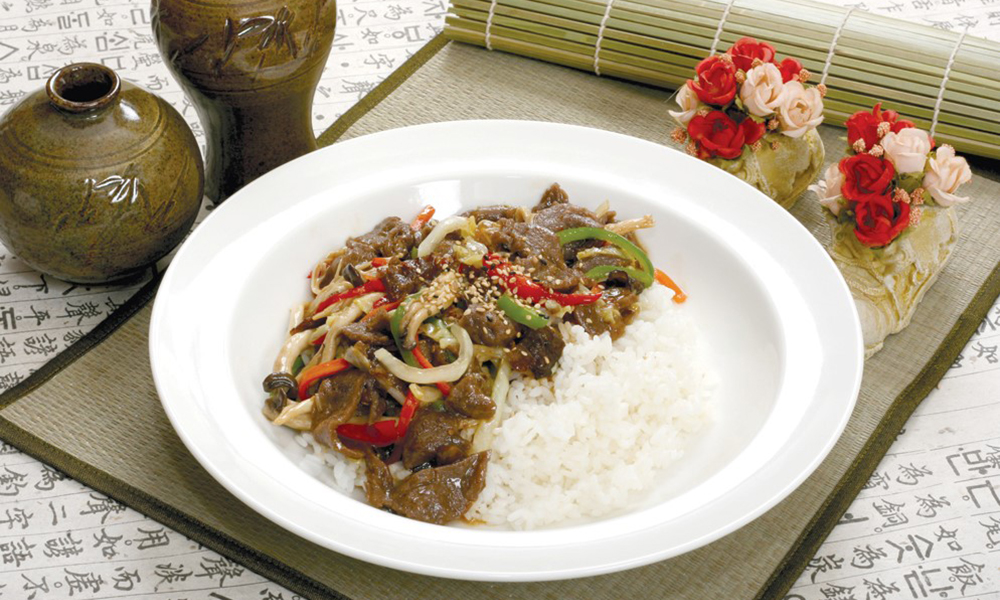
Osegyehyang, a vegan restaurant, has been operating in the same place in Insa-dong for more than ten
years, beginning when vegan restaurants were a rarity in Seoul.
It serves vegetarian jajangmyeon (Chinese noodle dish with vegetables and chunjang (black bean paste)), BBQ ssambap (vegetarian BBQ and rice wrapped in leaves) and a vegan steak set menu. Taste the variety of vegan hansik dishes on offer, cooked with homemade soybean protein and non-GMO ingredients.
- Osegyehyang
-
- Address
- 14-5 Insadong 12-gil, Jongno-gu, Seoul (Anguk Station, Exit 6)
- Website
- www.go5.co.kr
- Inquiries
- +82-2-735-7171
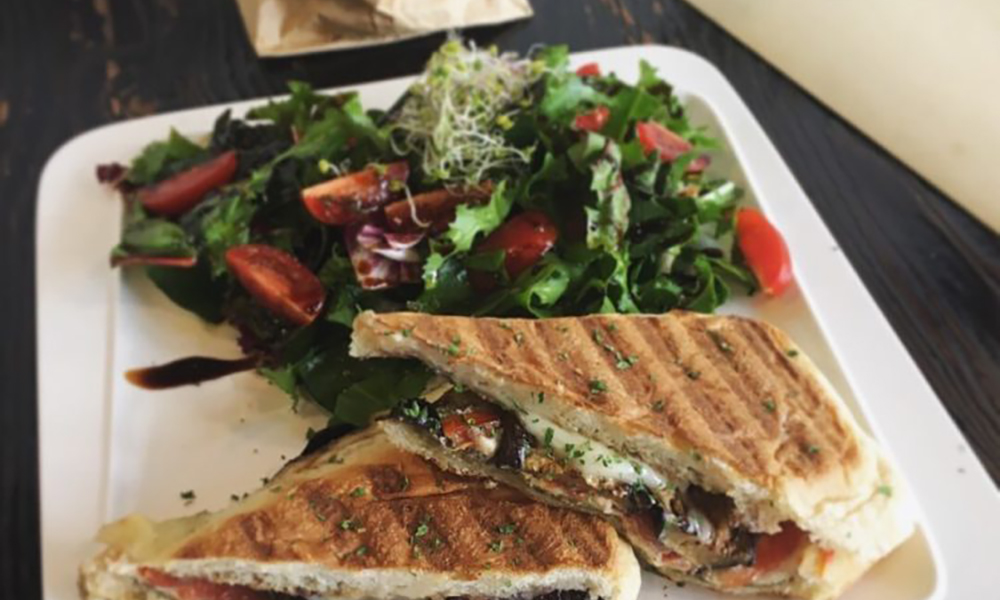
Vegetus’ pasta, lasagna, burgers and other offerings are animal ingredient-free and are rarely found in other vegan restaurants. Its signature dish is the “Vegetus burger,” which is as tasty as meat burgers, with their crispy lentil patties and vegan mayonnaise. Nut-free and gluten-free meals are also available.
- Vegetus
-
- Address
- 59 Sinheung-ro, Yongsan-gu, Seoul (Noksapyeong Station, Exit 2)
- Website
- www.vegetus.kr
- Inquiries
- +82-70-8824-5959
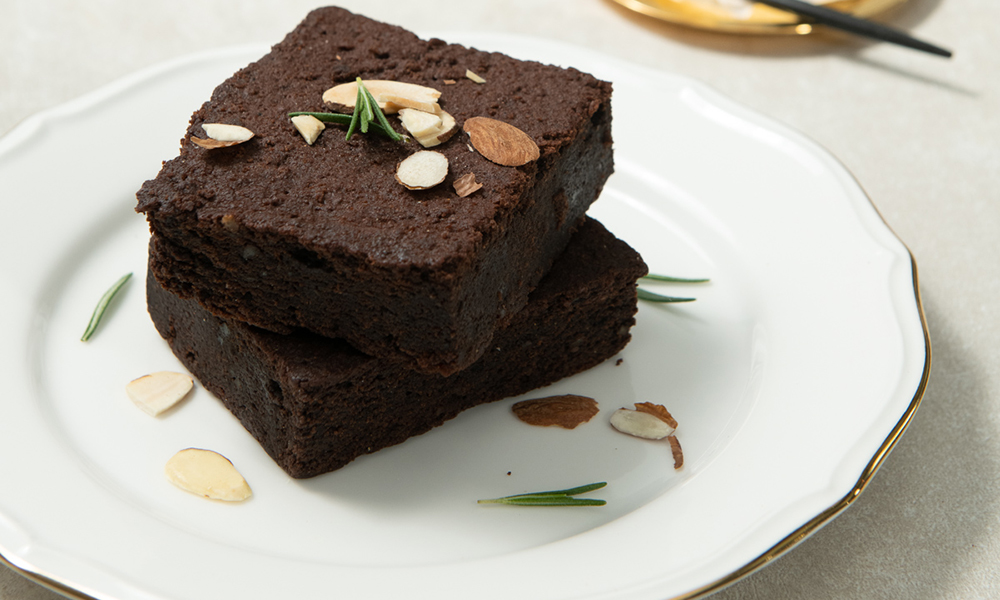
The Bread Blue is a vegan bakery that does not use eggs, milk, butter, or chemical food additives. Its signature product is fermented whole wheat bread, which looks like a rugby ball and includes walnuts, almonds, and cranberries, making it especially tasty.
- The Bread Blue
-
- Address
- 17 Seochojungang-ro 8-gil, Seocho-gu, Seoul (Nambu Terminal Station, Exit 1)
- Website
- thebreadblue.com
- Inquiries
- +82-2-525-0723
#The best halal food in Seoul
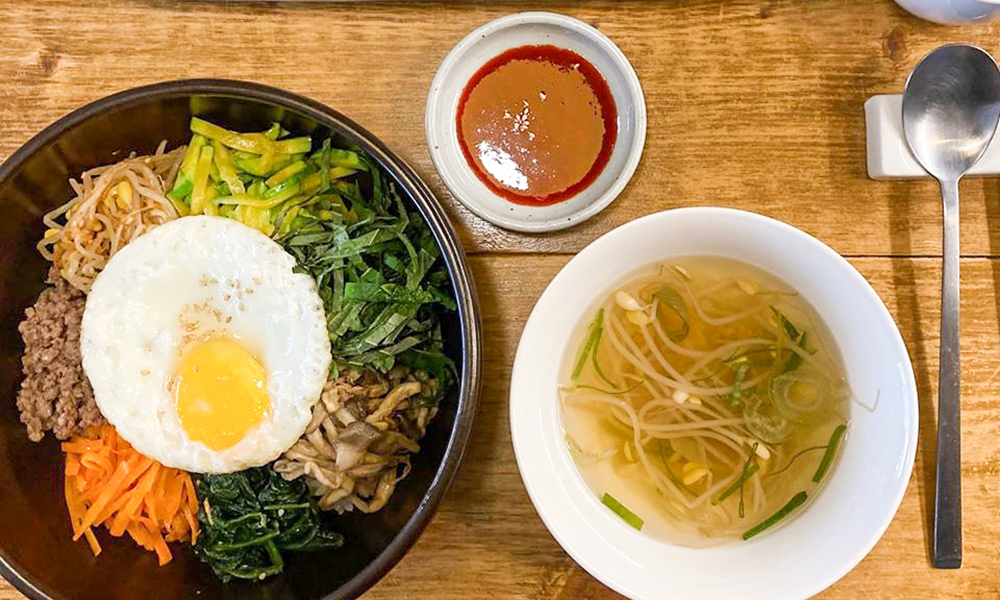
EID, operated by an ethnic Korean Muslim, is the first Korean restaurant to receive Halal certification from the Korea Muslim Federation. It serves Korean dishes such as jjimdak (braised chicken with vegetables), bibimbap, and beef bulgogi made with halal meat, organic vegetables, and alcohol-free gochujang (red pepper paste). Please note that lunch box delivery and catering services are also available.
- EID
-
- Address
- Usadan-ro 10-gil, Yongsan-gu, Seoul (Itaewon Station, Exit 3)
- Inquiries
- +82-70-8899-8210
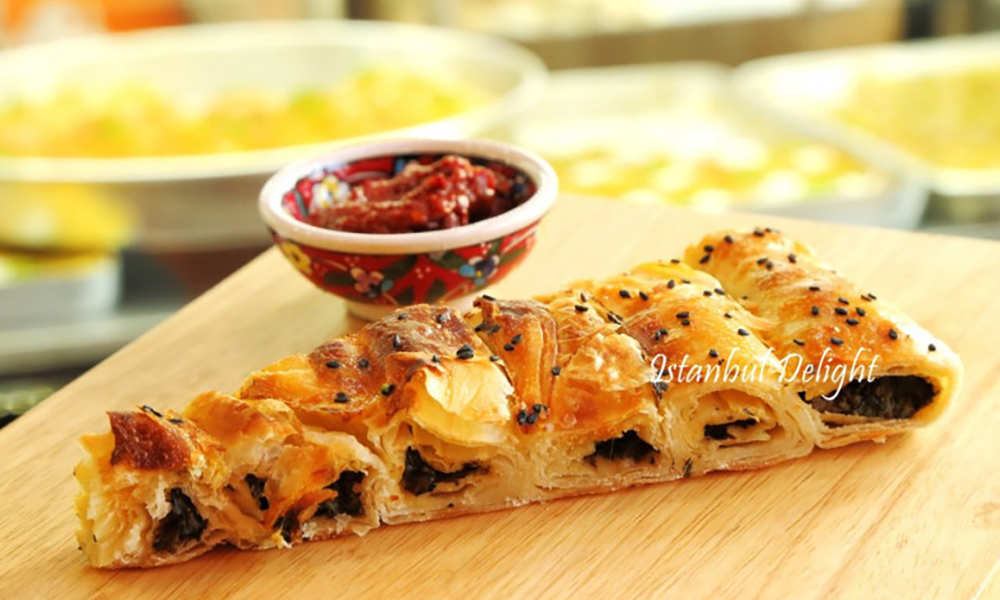
Istanbul Delight is a Turkish restaurant that serves Halal-certified Turkish food and desserts. With ingredients directly sourced from Turkey, it offers a variety of authentic Turkish delights, including ekmek and simit (traditional Turkish bread), baklava (a sweet dessert with nuts), and ayran (traditional Turkish yogurt).
- Istanbul Delight
-
- Address
- 1st fl, 40 Usadan-ro 10-gil, Yongsan-gu, Seoul (Itaewon Station, Exit 3)
- Website
- istanbuldelight.modoo.at
- Inquiries
- +82-10-7557-2645
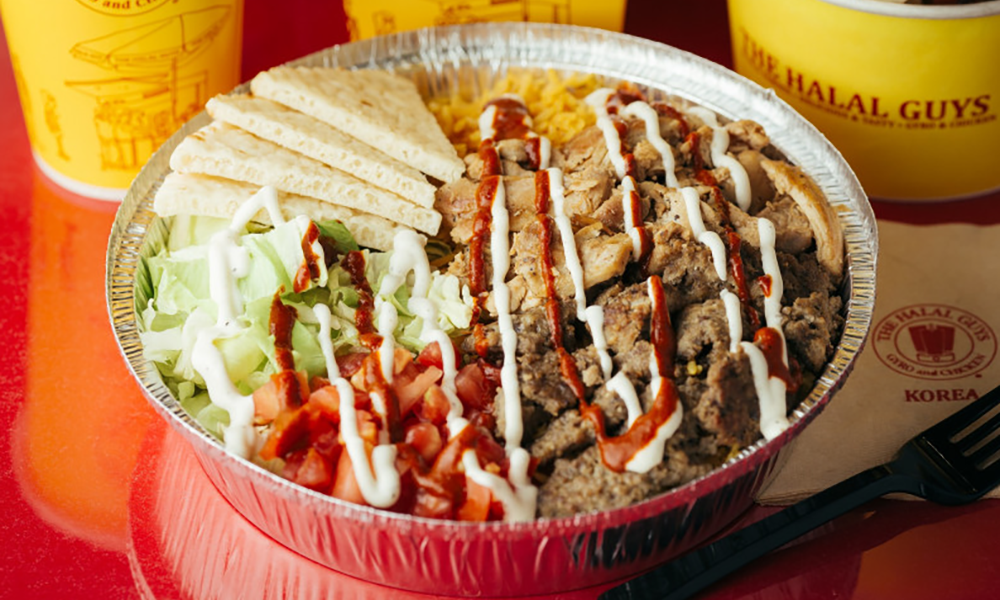
Halal Guys, which began as a food truck in New York before going on to open more than 200 branches
worldwide, has three locations in downtown Seoul.
Choose from chicken or beef, a combo (chicken + beef), or a falafel and enjoy it platter style, on a plate with vegetables and rice, or as a sandwich. Try adding some of their homemade white sauce if the hot sauce is a bit strong for you.
- Halal Guys (Itaewon Branch)
-
- Address
- 187 Itaewon-ro, Yongsan-gu, Seoul (Itaewon Station, Exit 2)
- Website
- thehalalguys.co.kr/
- Inquiries
- +82-2-794-8308
#Hotel dining in Seoul
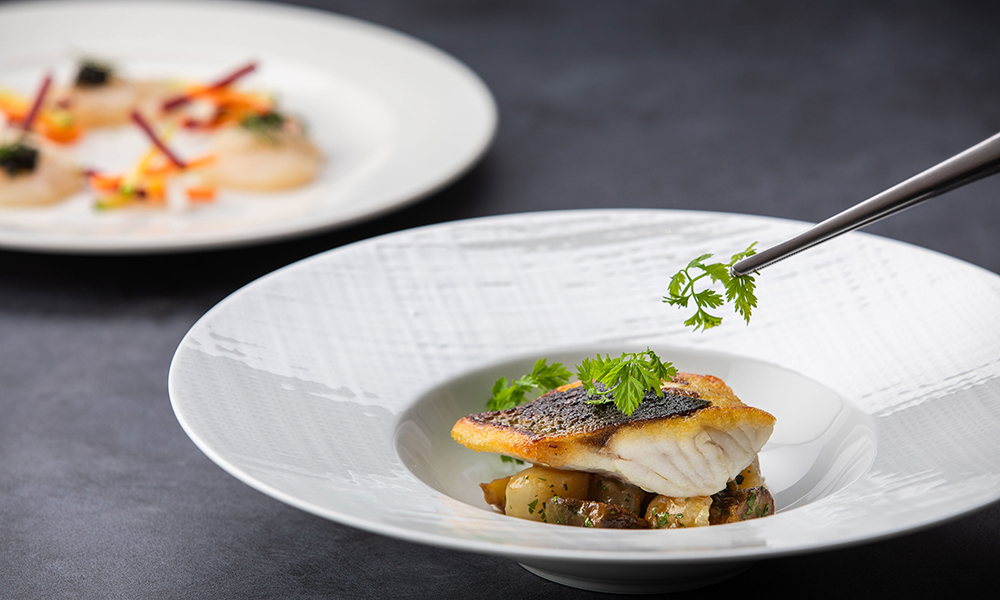
Most of the famous hotels in Seoul have excellent restaurants with no chance of failure in either
taste or atmosphere. Novotel Ambassador Seoul Gangnam's Entree is a contemporary dining place with
reinterpretation of Western and Korean cuisine.
It offers a French tasting course, a lunch pasta course, and a Hansik bansang (rice and side dishes arranged on a table) menu, among others. The a la carte menu offers great food for reasonable prices, starting in the 10,000 won range.
- Entree (Novotel Ambassador Seoul Gangnam)
-
- Address
- 130 Bongeunsa-ro, Gangnam-gu, Seoul (Sinnonhyeon Station, Exit 4)
- Website
- www.ambatel.com/novotel/gangnam
- Inquiries
- +82-2-531-6604

Bicena, on the 81st floor of Lotte World Tower, is the highest Korean restaurant in the world, in
terms of floor location. Take your business partners for a breathtaking view of Seoul and some
upscale Korean cuisine, creating an unforgettable memory in the city.
Current Korean President Moon Jae-in and Indian Prime Minister Narendra Modi also met for dinner here. The menu varies with the season. Come enjoy original Korean dishes hard to find elsewhere, such as brown croaker rice, abalone stuffed with scallops and mushrooms and ice cream made with roasted Jerusalem artichoke.
- Bicena (Signiel Seoul)
-
- Address
- 300 Olympic-ro, Songpa-gu, Seoul (Jamsil Station, Exit 2)
- Website
- www.bicena.com
- Inquiries
- +82-2-1811-1870
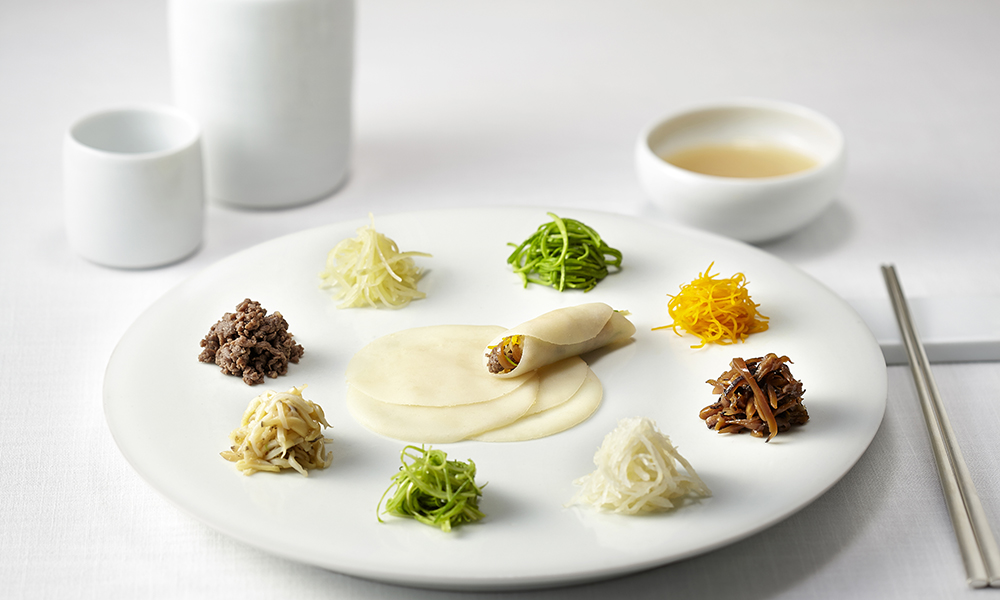
Located on the 23rd floor of The Shilla Seoul, La Yeon is one of only two Michelin 3-star
restaurants in Korea, featuring panoramic views of Namsan Mountain. Interpreting traditional Korean
cooking methods into fine, contemporary tastes, La Yeon has captured the attention of demanding
gourmets around the world. It pays such keen attention to the selection and sourcing of food
ingredients that it has a team that travels all over the country throughout the year to find the
best ingredients.
La Yeon’s signature dishes are abalone & rib soup seasoned with fermented seafood and hot pot rice with vegetables and abalone, made with abalone from Cheongsan-do. La Yeon has a list of about 480 different wine that pair well with its variety of dishes. You can also try some traditional Korean liquor.
- La Yeon (The Shilla Seoul)
-
- Address
- 249 Dongho-ro, Jung-gu, Seoul (Dongguk University Station, Exit 5)
- Inquiries
- +82-2-2230-3367
#Upscale dining in Seoul
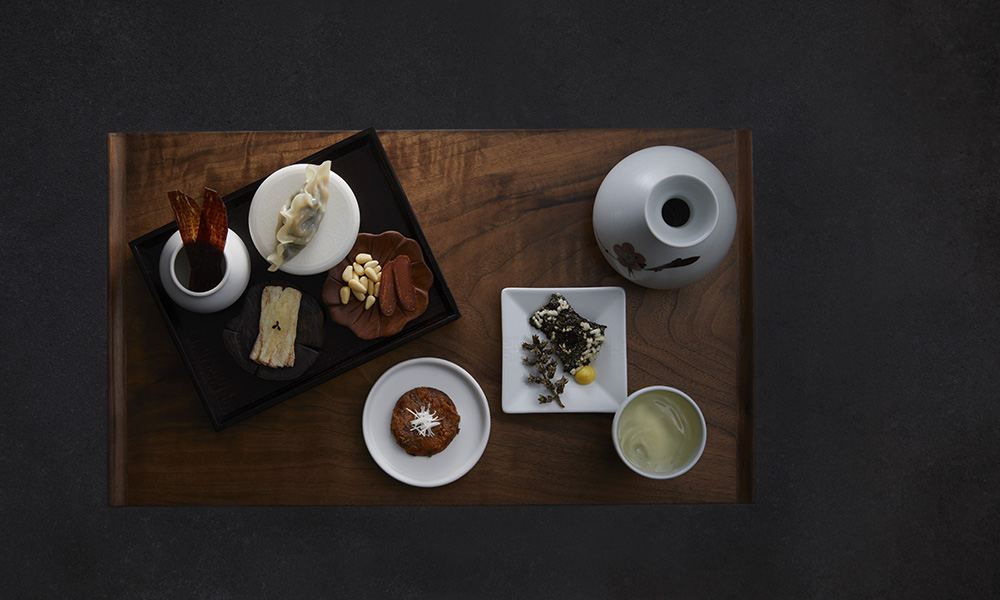
Chef Kwon Woo-joong's Kwon Sook-soo is an unusual Korean chef restaurant themed on fine Korean cuisine. It uses homemade jang (Korean paste), vinegar, and kimchi as well as high-quality seasonal ingredients to enhance the deep flavors of hansik.
- Kwon Sooksoo
-
- Address
- 37 Apgujeong-ro 80-gil, Gangnam-gu, Seoul (Apgujeong Rodeo Station, Exit 4)
- Website
- kwonsooksoo.com
- Inquiries
- +82-2-542-6268
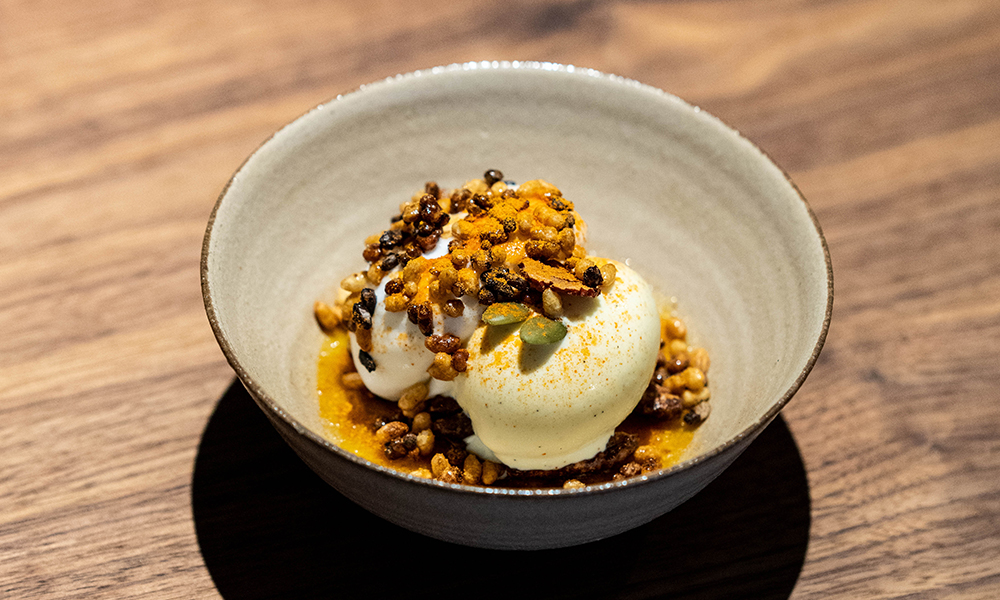
Mingles showcases Korean-style fine dining with modern nuances. It is well-known outside Korea
thanks to its unique recipes encompassing both Eastern and Western cooking methods.
Try some experimental dishes such as “Jang Trio”, Mingles' signature ice cream blended in Korea’s three major fermented condiments - ganjang (soy sauce), gochujang (red pepper paste), and doenjang (soybean paste).
- Mingles
-
- Address
- 19 Dosan-daero 67-gil, Gangnam-gu, Seoul (Apgujeong Rodeo Station, Exit 4)
- Website
- www.restaurant-mingles.com
- Inquiries
- +82-2-515-7306
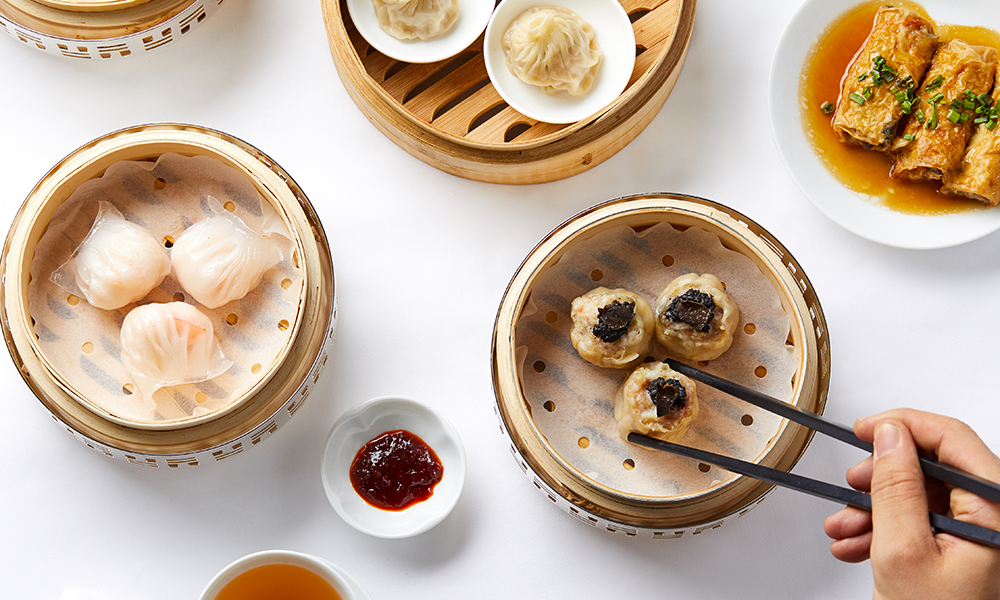
Located within the Four Seasons Hotel Seoul, Yu Yuan is a place to indulge in the splendid atmosphere of China in the 1920s at the center of Seoul. Peking duck is the signature dish and the dim sum set menu offered on weekends is also popular. Yu Yuan has private dining rooms that are perfect as a quiet meeting place.
- Yu Yuan
-
- Address
- 97 Saemunan-ro, Jongno-gu, Seoul (Gwanghwamun Station, Exit 7)
- Website
- www.fourseasons.com/kr/seoul/
- Inquiries
- +82-2-6388-5500
